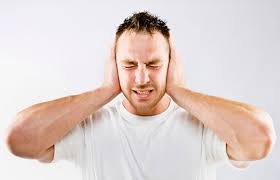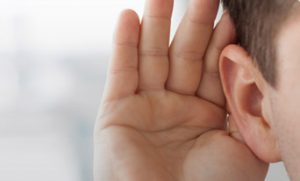Surprising facts about Hearing Loss and Risks of Untreated Hearing Loss
Overall hearing loss statistics by age
In 2017 a report by the Hearing Care Industry Association estimated there to be 3.6 million Australians with hearing loss, with almost one million more males than females showing a hearing deficit. Hearing loss is more common in older people as our hearing sense ‘wears’ out as we age. Some people are more susceptible to this aging-related hearing loss, particularly those who have worked in noisy industries or have hearing loss in their family. The older we get, the more likely we are to have hearing loss as these statistics show:
- 30% of people aged between 51-60 years in Australia will have hearing loss
- Over half Australians aged between 61–70 years will have hearing loss
- Once you’re over 70 years of age, the likelihood of you having hearing loss goes up to almost 75%
- Across the world one in three people aged 65 and older have hearing loss.
Why many people don’t do anything
There are lots of reasons why people with hearing loss choose not to seek help or rehabilitative options for their hearing loss and communication deficit. Most of them are based in fallacy or a misunderstanding of what can be done to optimise their hearing levels. Common misunderstandings include:
- My hearing isn’t bad enough – unless your hearing loss is very mild, there’s generally some type of hearing device that can assist you in improving your hearing.
- I’m too embarrassed to wear one – this can come from thoughts around the stigma of hearing loss. If you need a hearing aid, does that mean you’re old? Or stupid? It can also come from worrying about having people notice you’ve got a device in your ear. Hearing aids are now much smaller (some even invisible) and with the massive boom in the ear bud industry, most people, young and old, are walking around with some listening device in their ears. How do you know that the young woman out jogging with ear buds doesn’t have an amplification component in her devices? You don’t – and more than likely, people won’t even notice if you’re wearing a hearing aid, just that you’re suddenly more communicative.
- I can get along without one – can you? Or is your partner doing all the listening heavy lifting for you? If you think about it, if you don’t have a hearing device, and you need one, you can appear disconnected to the world around you, ignoring conversations and mishearing what’s going on. Optimise your hearing to stay connected.
- It will make me feel old – why? Getting a hearing aid will enable you to join in more, become less isolated. It will probably give you a second lease on life.

Risk factors of untreated loss
Hearing Loss and Cognitive Decline
The World Health Organisation (WHO) and Dementia Australia highlight hearing loss as one of the health factors that add to the risk of cognitive decline and dementia. Evidence indicates that people with reduced hearing levels tend to have poorer cognition function.
This suggests hearing loss is associated with increased risk of developing dementia. Imaging technology demonstrates cognitive decline occurs with changes in the brain. Brain shrinkage occurs in people with dementia and the brain shrinks faster with hearing loss. This shrinkage occurs in the regions associated with processing speech and sound.

A 2018 study into dementia and Alzheimer’s found people with hearing loss were 24 per cent more likely to have Alzheimer’s. A 2019 study showed this was particularly evident if this hearing loss occurred between 45 – 65 years (middle age). An eight year research investigation on hearing loss, dementia and depression had results suggesting being diagnosed with dementia was reduced by 18 per cent in people who sought rehabilitation for their hearing loss. A 2020 research paper on older hearing impaired Australians (62-82 years) showed that after 18 months of hearing aid use, significant improvements were seen in a number of areas associated with hearing.
Remarkably over 97 per cent of participants demonstrated significant improvement in mental abilities such as planning, organising information and completing tasks, with women having substantial improvements in working memory.
Hearing Loss and Social Isolation
Often people with hearing loss separate themselves from others to take away the burden of difficult communication. Isolation from others, particularly from noisier social situations can impact you, but also your partner, as your unwillingness to join in social situations can impact their social life as well.
They may not wish to attend social gatherings without you. On the other hand, they may go alone, leaving you to become more isolated at home in your increasingly shrinking world.
Studies have shown that isolation leads to premature death, and hearing loss is a leading cause of isolation.

Hearing Loss and Depression
There have been many studies carried out investigating the relationship between hearing loss and depression. A large survey from America found that adults over 50 with untreated hearing loss were more likely to note depression and anxiety as a health problem, compared to those who wore hearing aids.
Feelings of sadness or depression were not uncommon in those not wearing hearing aids, if they needed them. Another more recent study found a strong association between hearing loss and moderate to severe depression. So why would depression and hearing loss go hand-in-hand? There are a number of reasons, including factors such as hearing loss leading to communication difficulties, which then can lead to stress and social isolation. Social isolation lends itself to depression in older adults.
If someone is finding it difficult and/or stressful to communicate at work, in social situations and at family gatherings, this can have a big impact on their mental health and wellbeing.

Hearing Loss and Relationships
It’s frustrating having a hearing loss – always having to ask for repeats, looking as if you’re not interested and missing out on important information.
But have you ever considered how challenging it is for your friends and family? Are they always having to repeat what they’ve said, or put up with the TV being too loud? Certainly exasperating for them as well. And this frustration, on both sides, can but a strain on relationships.
There are subtle ways a hearing loss can impact your relationships. For example, your communication partner thinks you’re ignoring them. When you don’t hear as well as you used to, you not only miss words, but you might not realise someone is talking to you.
You may get frustrated asking for repeats all the time, so to hide this frustration, you just nod and agree with the people you’re communicating with. But what have you agreed to?
Agreeing to something, then denying it later, or not doing what you agreed to do, puts subtle stresses on relationships. This can lead to resentment from your loved ones. These a just a couple of examples of how hearing loss can put a strain on relationships.
Understanding and acknowledging these issues will go a long way towards becoming a better communicator.
Hearing aids will certainly assist in this area, but you can also make subtle changes to the way you communicate with your family and friends, to make your interactions relaxed and enjoyable – as they’re meant to be.
Next Article –> Audiologist vs Audiometrist
Previous Article –> Do You Need A Hearing Aid

